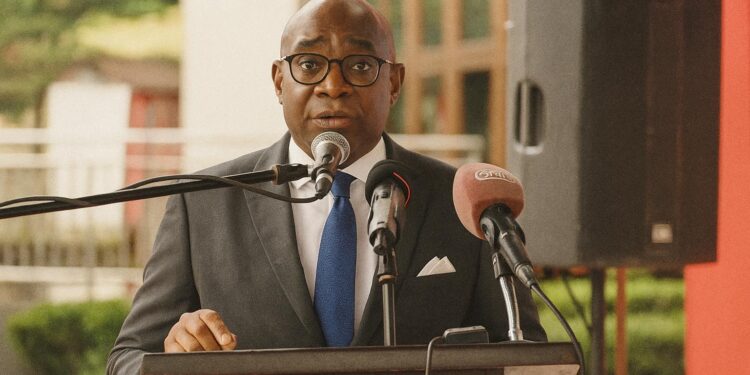Anatomy of a Turning Point for Congo
In an atmosphere where urgency met method, Brazzaville hosted from 8 to 10 July 2025 an inter-ministerial workshop that formally validated the National Recovery and Future Crisis Preparedness Strategy 2025-2030. The exercise, conducted with technical stewardship from the United Nations Development Programme (UNDP, 2025), closes a four-year drafting cycle that began in the aftermath of the 2021 floods and now integrates lessons from the more punishing inundations of 2023. Government delegates, UN agencies, the Congolese Red-Cross and civil-society technocrats coalesced around a unifying proposition: Congo cannot afford a reactive posture in the face of increasingly frequent climate-induced and technological shocks.
Strategic Rationale and Vision 2030
The document’s lodestar is explicit—by 2030 the Republic of Congo aspires to become a resilient polity capable of orchestrated recovery within months rather than years after a shock. The vision is anchored in three mutually reinforcing pillars. First, an accelerated reconstruction of social infrastructure such as clinics, schools and climate-proof housing in locales historically exposed to riverine flooding. Second, the rehabilitation of strategic lifelines—bridges over the Sangha, solar-powered boreholes in the Cuvette, feeder roads connecting Pool to Brazzaville’s commodity corridors. Third, the revitalisation of livelihoods through targeted stimulus for smallholder agriculture, artisanal fisheries and livestock re-stocking. Collectively, this triad is intended to shift the public conversation from humanitarian relief to sustainable development, a nuance senior adviser Joseph Pihi framed as “moving from band-aid economics to preventive resilience” during the closing session.
Calibration with Global Frameworks
Congo’s posture is not elaborated in a geopolitical vacuum. The Sendai Framework for Disaster Risk Reduction is woven throughout the strategy, with benchmarks corresponding to its Priority 4 on ‘Build Back Better’. The plan also echoes the African Union’s Agenda 2063 in its emphasis on regional infrastructure corridors. According to the UN Office for Disaster Risk Reduction, fewer than ten African states have yet operationalised multi-hazard early-warning systems; Congo’s intent to deploy community-based sensors along the Congo and Ubangi rivers would place it in the continent’s first quartile. Diplomats from the Economic Community of Central African States, present as observers, hinted that Brazzaville’s model could seed a sub-regional platform for harmonised response protocols (ECCAS communiqué, 2025).
Financial Architecture and Partnership Matrix
Costed at 156.7 billion FCFA—approximately 239 million euro for the 2025-2026 biennium—the plan relies on a blended finance architecture. Domestic resources will be front-loaded through the Public Investment Budget, while concessional windows from the Green Climate Fund and the African Development Bank are earmarked for renewable-energy components. The UNDP Resident Representative ad interim praised the government’s decision to create an autonomous Disaster Response Fund with a ring-fenced replenishment mechanism, observing that ‘predictable liquidity is the difference between timely relief and protracted crisis’. Parallel negotiations with the World Bank’s Catastrophe Deferred Drawdown Option are reported to be at an advanced stage (World Bank brief, 2025), providing an additional financial firewall.
Governance, Inclusivity and Social Licence
Governance innovations constitute the spine of the strategy. A high-level Steering Committee chaired by the Prime Minister will convene quarterly to arbitrate priorities and publish implementation scorecards. The text codifies gender mainstreaming, mandatory consultation with Indigenous communities in Likouala and an obligation to translate early-warning messages into Lingala, Kituba and Mboshi. These provisions respond to critiques levelled after the 2023 floods, when language barriers reportedly delayed evacuations in riverine hamlets (IFRC, 2024). By enfranchising vulnerable constituencies, the government aims to generate the social licence indispensable for fielding preventive relocations or enforced building standards.
Operational Hurdles and Accountability Mechanics
Yet challenges loom. Historical execution rates for capital projects oscillate around fifty-eight percent according to the Ministry of Finance, underscoring the need for what analyst Brice Mabiala termed ‘discipline of delivery’. The Monitoring and Evaluation Unit, lodged within the Ministry of Social Affairs, will deploy geo-tagged dashboards to track progress against 42 key indicators ranging from bridge rehabilitation mileage to the number of households benefitting from micro-insurance. Civil-society watchdogs have already signalled their intent to audit disbursements, an evolution welcomed by workshop delegates as evidence of a maturing accountability ecosystem.
Regional Consequences and Diplomatic Optics
Beyond national borders, Brazzaville’s posture is geopolitically resonant. The Congo River Basin is a trans-boundary catchment whose hydrological volatility reverberates in Kinshasa and Bangui. By institutionalising early-warning data-sharing, Congo positions itself as a cooperative hydrological steward, a move consonant with President Denis Sassou Nguesso’s advocacy for climate diplomacy at the Summit for Three Basins in 2023. International partners, mindful of supply-chain fragilities exposed during the Covid-19 pandemic, perceive the strategy as a hedge against regional humanitarian spill-overs. French Development Agency officials privately noted that reliable river transport hinges on resilient riparian infrastructure on the Congo side.
A Measured Path Forward
The newly validated strategy is neither a panacea nor a mere policy ornament. Its gravitas lies in the pragmatic acknowledgment that resilience is a continuum demanding iterative calibration. Success will depend on sustained political will, the agility of institutions to course-correct in real time and the mobilisation of communities as co-architects rather than passive beneficiaries. For Brazzaville’s diplomats, the plan offers an additional dividend: it signals to partners that Congo is prepared to shoulder a greater share of collective security in an era where disasters increasingly traverse borders with the ease of digital capital.











































